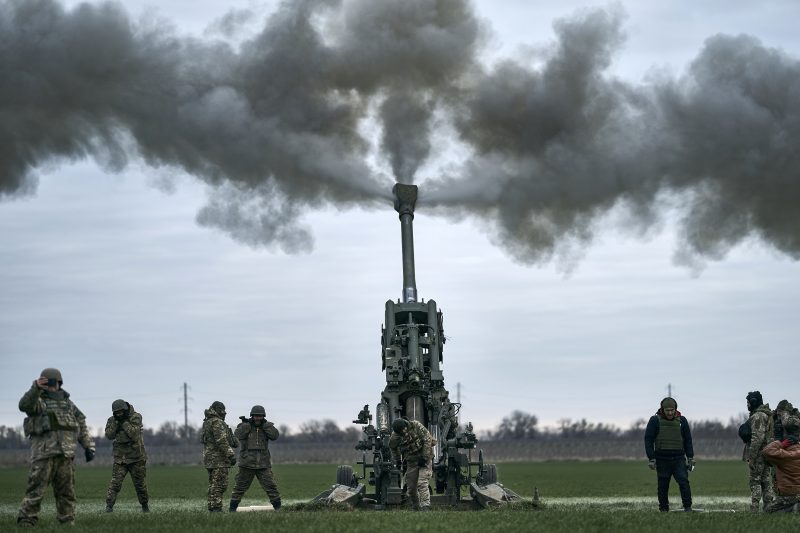The Biden administration’s sprawling effort to help Ukraine fend off Russia’s invasion will face scrutiny in the Republican-led House on Tuesday during a pair of hearings at which lawmakers from both political parties are expected to press senior defense officials about whether the effort is sustainable and if there is adequate accounting of the advanced weapons that have left American stockpiles.
Republicans, in particular, have promised vigorous oversight of the administration’s commitment of tens of billions of dollars in military and other aid, even as a split calcifies in the GOP over whether to scale back U.S. support.
The first hearing will be convened by the House Armed Services Committee at 10 a.m., with testimony from Colin Kahl, the undersecretary of defense for policy; Robert Storch, the Defense Department inspector general; and Lt. Gen. Douglas Sims II, director of operations for the Pentagon’s Joint Staff.
In the afternoon, the House Appropriations subcommittee on defense is scheduled to hear testimony from Sims and Celeste Wallander, the assistant secretary of defense for international security affairs. That hearing is due to start at 2 p.m.
Their testimony is likely to provide fresh insight into how the administration’s military assistance for Ukraine could evolve — while lawmakers’ banter and line of questioning could reveal just how tenuous Republican backing has become.
Tuesday’s hearings come about two weeks after the armed services committee’s new chairman, Rep. Mike D. Rogers (R-Ala.), led a bipartisan congressional delegation to Poland and Romania meant to observe how the U.S. military delivers and tracks the weapons it provides to Ukraine. The lawmakers released a joint statement after their trip calling for greater transparency on the issue.
“The American people have every right to know that U.S. military equipment donated to Ukraine is being used for its intended purpose — Ukraine’s fight for national survival,” the lawmakers said. They added that they “came away with a clear understanding of the various safeguards” that have been put in place after a briefing with the American general who oversees the effort, but warned that “should we confirm that any defense articles are siphoned off, diverted, or missing the flow of U.S. equipment would cease to be tenable.”
While some outspoken conservatives want to end U.S. military and financial support for Ukraine, many mainstream Republicans have instead called for tougher oversight while continuing to support robust assistance packages — with some criticizing President Biden for not doing more to help. A number of Republicans and Democrats have called on the administration to send long-range missiles, F-16 fighter jets and other weapons that have been held back.
In December, Republicans in the House Foreign Relations Committee backed a resolution by Rep. Marjorie Taylor Greene (R-Ga.) to audit U.S. economic aid for Ukraine. The legislation was ultimately defeated 26-22 as Democrats, still in the House majority at that time, stayed united on the issue. Nevertheless, the vote served as a preview of Republican demands for greater accountability.
In November, U.S. officials said they had so far inspected about 10 percent of the weapons provided to Ukraine while pledging to expand the effort in coming months, with an emphasis on Javelin antitank missiles, Stinger antiaircraft missiles and other smaller systems that could have a heightened risk of going missing.



























